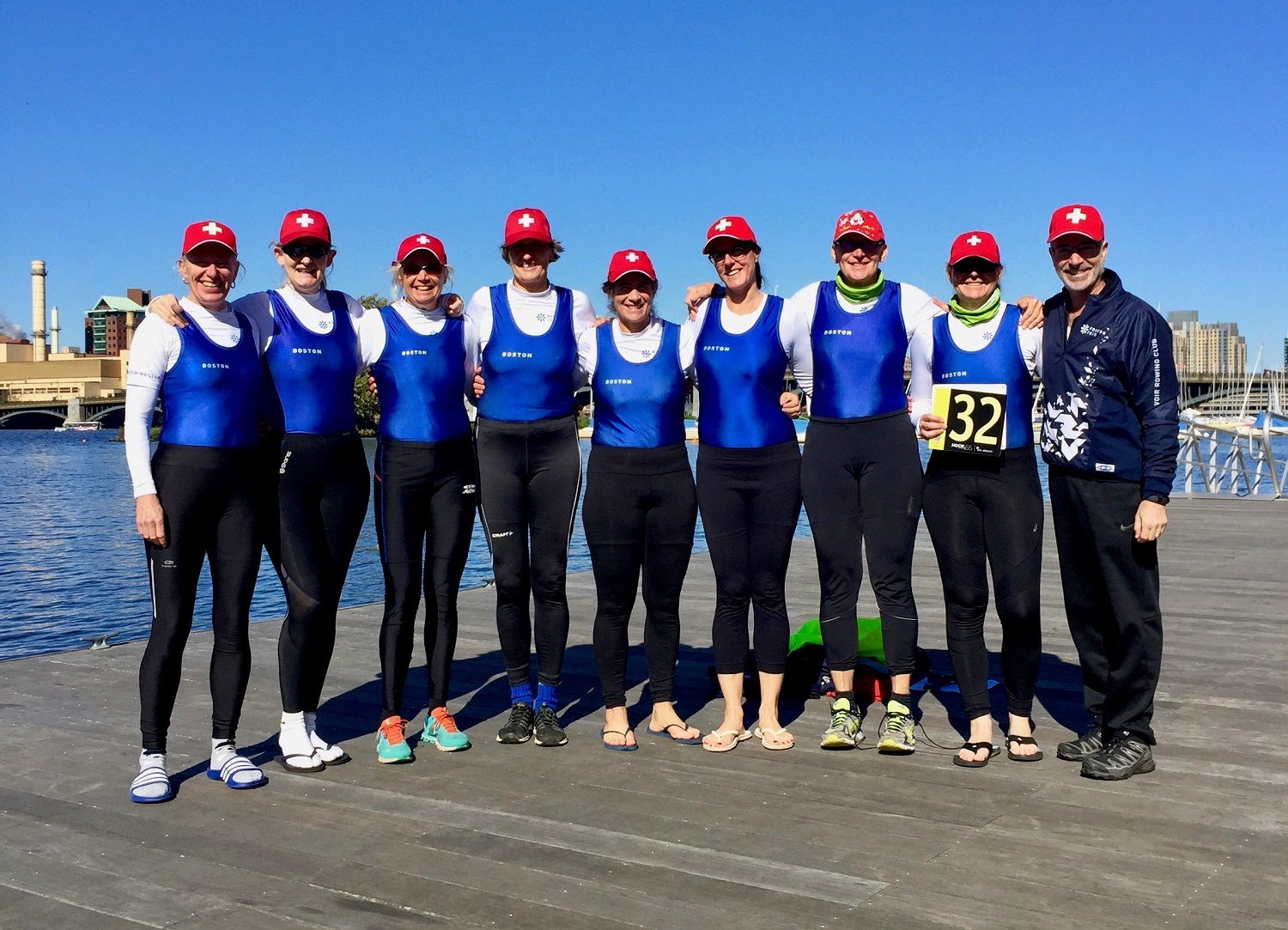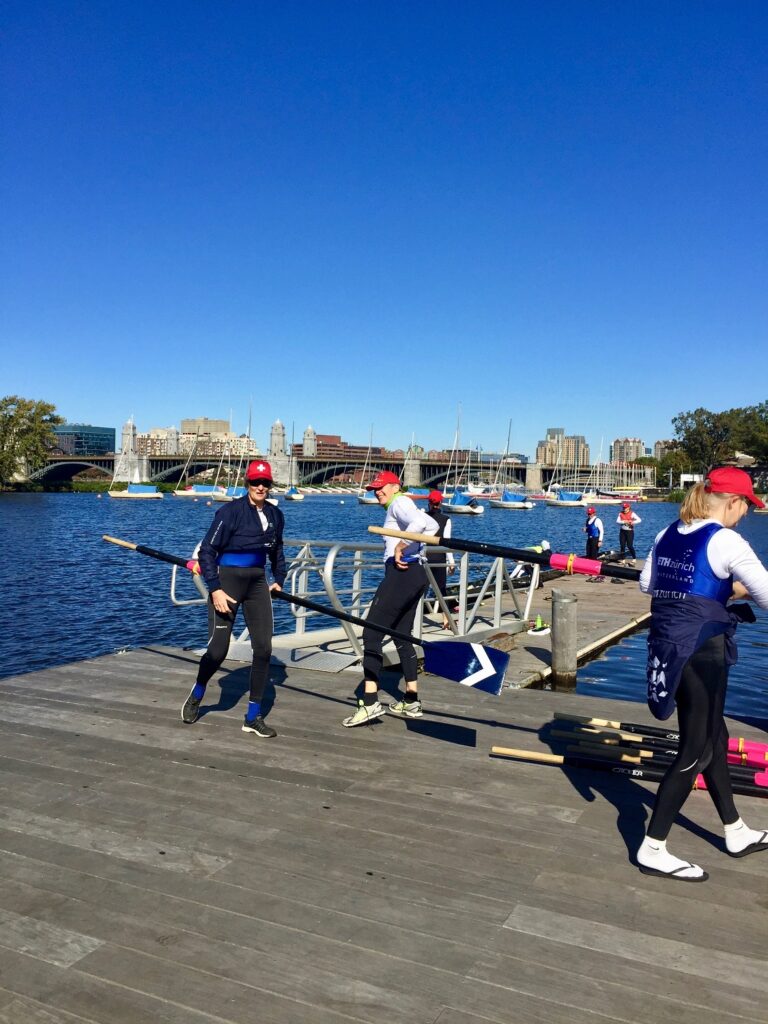It’s early in the morning on a sunny autumn day. The light catches the water and reflects the shoreline like a mirror. The water is very still. There’s just a small breath of wind… Conditions are absolutely ideal for being out on the water.
This could be a scene from morning trainings at Belvoir Ruderclub on Lake Zurich, but we are in fact in Boston, Massachusetts, for the 2019 Head of the Charles Regatta. Soon, the quiet turns into a clamour as crowds form on the banks of the Charles River and the bridges crossing it, with everyone vying for the best spot to watch the boats pass by. Race day has arrived!
Held every year on the last weekend of October, this is the largest 2-day regatta in the world. This is the third year we are participating with a Women’s Eight – we were in the Over 40 category in 2015 and 2016, and the Over 50 category in 2019.
Rowing is the ultimate sportsperson’s sport: it can be practised year round, come rain come shine come snow come sleet, by people of all ages. Men and women may compete in separate categories, but there are also mixed classes. Rowing is one of the oldest Olympic sports, and it has featured in the Paralympics since 2008.
When I made the switch from triathlon to rowing in the mid-90s, it was the beginning of an enduring love affair with this sport and pastime. To this day, nothing quite compares in my opinion; here are 5 reasons why I enjoy rowing so much, and why you should give it a go too:









